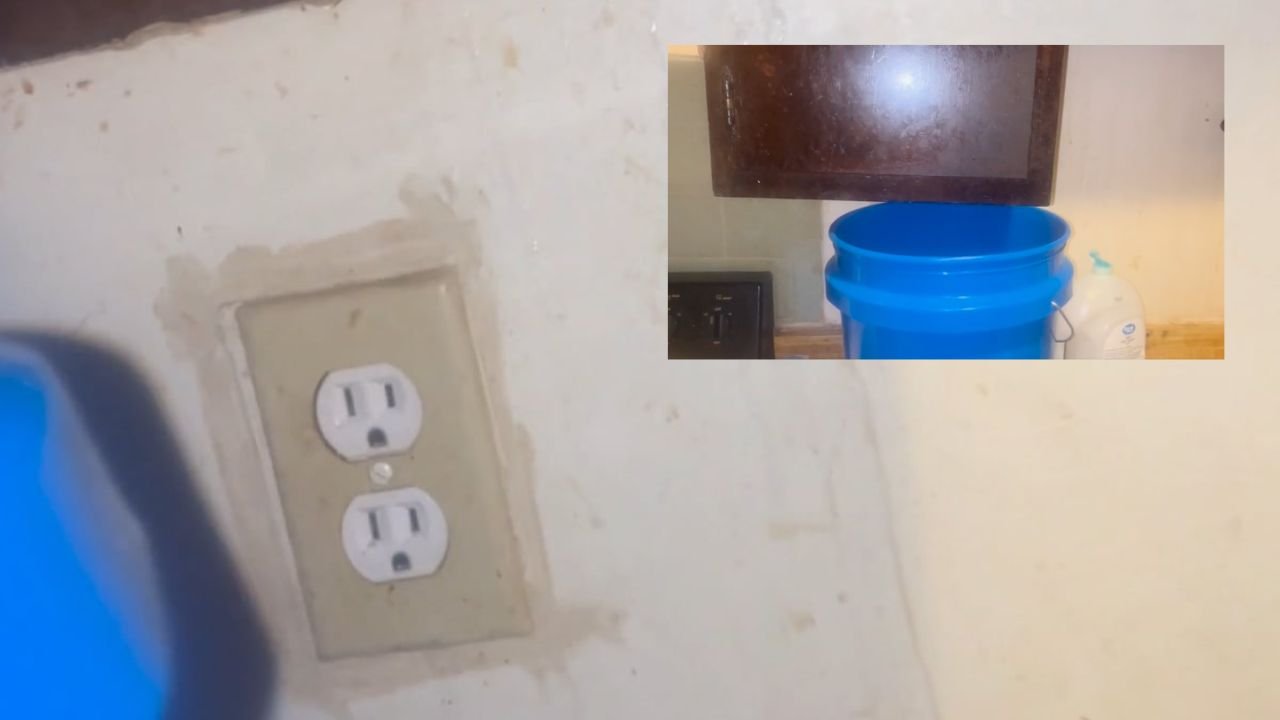Kentucky Landlady Blasted for Refusing to Fix Apartment With Leaking Walls: ‘They Need to Resolve This ASAP’

KENTUCKY – A Kentucky tenant is drawing attention to unsafe housing conditions after sharing a video that shows brown water leaking through the walls of their apartment. Despite repeated requests for help, the tenant says their landlady has refused to fix the problem, raising questions about landlord accountability and the protection of renter rights in the state.
Tenant Shares Alarming Footage
The video, which spread quickly across social media, captured water pouring down the tenant’s kitchen walls in alarming amounts. The liquid was brown and discolored, suggesting contamination from rust, sewage, or damaged building materials.
The tenant, who lives in an apartment complex overseen by a local landlady, claims they contacted her several times to report the issue. According to the resident, their landlord refused to send a plumber or maintenance worker, leaving them to cope with the hazardous conditions.
Property manager said “nothing we can do about it today” (won’t come out of her house to inspect )
byu/Necrophagedotjpg inTenant
In many states, such neglect could trigger immediate intervention, but in Kentucky, the tenant had few immediate remedies. Instead, they turned to the internet to share their story — a move that generated widespread outrage, as detailed in a report on the apartment video.
Community Outrage and Calls for Action
The shocking footage prompted an outpouring of advice from commenters. Many urged the tenant to escalate the matter to city officials, warning that untreated water damage can quickly spread to other units and cause long-term structural problems.
One commenter wrote:
“Call your town hall and report your LL. Ask for the water to be shut off before irreversible damage occurs, and tell them that LL refuses to address it.”
Another added:
“PM has a job and is not doing it. Completely negligent on their part. They need to resolve this issue ASAP.”
Others shared concern about the health risks posed by prolonged exposure to mold, bacteria, and water-damaged drywall, especially for families with children, elderly residents, or those with respiratory issues.
Health and Safety Risks of Water Damage
Experts warn that leaking water inside walls can cause more than cosmetic damage. Continuous moisture can lead to:
- Mold growth, which can spread within 24 to 48 hours and trigger respiratory illnesses.
- Electrical hazards, if wiring becomes exposed to water.
- Structural weakening, as wooden framing, insulation, and drywall begin to rot or collapse.
- Infestation of pests, since damp environments attract insects and rodents.
The U.S. Environmental Protection Agency stresses that any property with significant water intrusion should be repaired immediately to prevent long-term damage and health issues. In many cases, ignoring such repairs can render a unit uninhabitable under housing standards.
Kentucky Tenant-Landlord Law: What Are the Rules?
Kentucky operates under the Uniform Residential Landlord and Tenant Act (URLTA), but only about 40 percent of Kentucky’s counties have adopted it. In areas without URLTA protections, renters often face an uphill battle when dealing with negligent landlords.
Under URLTA, landlords are legally required to:
- Keep properties safe and habitable.
- Make necessary repairs within a reasonable timeframe once notified.
- Maintain plumbing, electrical systems, and structural integrity.
If a landlord refuses to make repairs, tenants in URLTA counties may:
- Withhold rent until repairs are made.
- Pay for repairs themselves and deduct the cost from rent.
- File a complaint with local code enforcement offices.
- Break their lease if the unit is deemed uninhabitable.
In counties without URLTA, tenants must rely on general contract law and often pursue remedies through small claims or district court, which can be costly and time-consuming.
Tenant Options in This Case
For the Kentucky tenant dealing with leaking walls, the most urgent step may be filing a code enforcement complaint with local authorities. If inspectors determine the leak is a health or safety hazard, they can order the landlord to make repairs or impose fines for non-compliance.
Housing advocates recommend tenants documenting all evidence — including photos, videos, and written communication — to strengthen any future legal case. Community organizations and Kentucky legal aid services also provide renters with free or low-cost support in disputes with landlords.
A Larger Conversation on Housing
This incident adds to growing concerns about substandard rental housing in Kentucky. Neglected repairs, water damage, and mold infestations highlight the gap in both enforcement and tenant protections, particularly in counties that lack URLTA adoption.
For renters, it serves as a reminder to research local housing laws before signing a lease. For policymakers, it underscores the urgent need to expand uniform tenant protections statewide so that all residents — not just those in certain counties — are protected from negligent property managers.
While the tenant’s immediate future in their current unit remains uncertain, their video has already sparked broader conversations about landlord accountability and the right to safe housing. Many hope the viral story will push local officials to intervene and prevent similar situations for others across the state.
